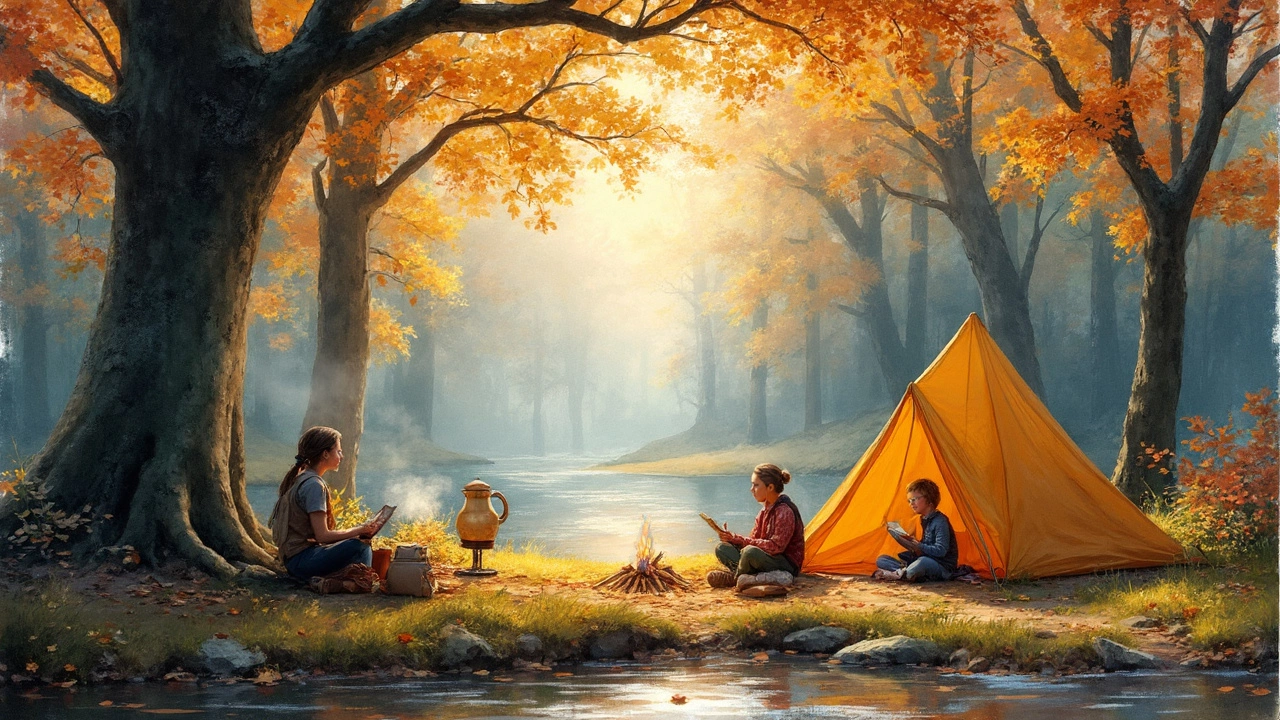Nature Therapy: Simple Ways the Outdoors Can Boost Your Mood
Ever notice how a walk on the beach or a night under the trees clears your head? That’s nature therapy in action. You don’t need a fancy spa – just fresh air, a bit of sunshine, and a change of scenery. Below we break down why nature feels good and give you real‑world steps to make your next road trip a mental‑health boost.
Why Nature Feels Good
Scientists say the view of green or blue space lowers cortisol, the stress hormone. When you’re surrounded by trees, the sound of waves, or even a quiet campsite, your body relaxes automatically. The simpler your surroundings, the easier it is for your brain to switch off the constant buzz of notifications.
In practice, people who spend a night in a forest or a few days at a coastal campsite report better sleep, clearer thoughts, and a brighter outlook. It’s not a myth – the change in lighting, fresh air, and gentle movement all help reset your nervous system.
Practical Tips to Turn a Trip into Therapy
1. Pick a spot that matches your mood. If you need calm, try a quiet forest like a state forest in Wisconsin (see our free‑camping guide). If you crave energy, a beach campsite in California offers waves and sunrise walks.
2. Unplug, even if just for a few hours. Turn off your phone or set it to airplane mode. Use that time to read a map, stretch, or watch the clouds drift. The less you’re tempted to check messages, the deeper the reset.
3. Make movement part of the stay. A short hike, a paddle on a nearby lake, or a simple stroll along a shoreline gets blood flowing and boosts endorphins. No need for a marathon – 20 minutes is enough.
4. Set a simple routine. Wake up early, brew tea over a camp stove, and watch the sunrise. End the day with a short gratitude note in a journal. Routine creates a sense of safety, especially in new locations.
5. Bring a low‑tech comfort. A 12‑volt TV powered from your battery can be a nice way to unwind after a day of exploring (see our guide on safe battery‑powered TV use). It’s optional, but having a small, familiar activity can make the night feel cozy.
6. Stay safe and legal. Before you set up, check local rules – whether you’re stealth camping in the UK, boondocking at a Walmart, or parking by a California beach. Knowing the limits lets you relax without worrying about a fine.
7. Connect with others, but keep space. Sharing a campfire with friends can lift spirits, but if you’re looking for solo reflection, a single‑person tent or a car‑camp spot works just as well. Solo camping for women, for example, is safe with a few extra precautions.
By layering these simple habits into any road trip, you turn a regular getaway into a therapeutic experience. You don’t have to roam far – even a night in your own backyard can give you a taste of nature’s reset button.
So next time stress starts to pile up, grab your motorhome keys, pick a campsite from our list, and let the outdoors do the rest. Your mind will thank you, and you’ll return home feeling refreshed and ready for the next adventure.
-
 VIEW POST
VIEW POSTIs It Healthy to Spend Time in the Woods?
Feb, 13 2025|0 CommentsSpending time in the woods can offer several health benefits, both physically and mentally. From boosting your mood to enhancing your creativity, nature therapy is increasingly popular for its positive effects. Being in a forest campsite not only provides a break from technology but also enriches your senses. With cleaner air, less noise, and calming scenery, the woods present a rejuvenating environment. This article dives into how being in the woods can enhance well-being and offers tips for making the most out of your forest excursions.